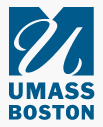Home > CIEE > Vol. 3 > Iss. 1 (2016)
Abstract
Much of the interest in MOOCs centers on questions about who completes them. Duke’s Coursera-based Massive Open Online Courses (MOOCs) confirm many demographic trends previously delineated by researchers at peer institutions. As found in previous research, this study found individuals who speak English as a first language and who already earned at least a bachelor’s degree are the most likely to complete a Coursera course. MOOC researchers to date have not, however, developed clear operational definitions about who constitutes a learner at the outset of the course. This paper proposes some possible definitions to standardize future research. Further, this study looked at factors that predict different learner participation levels and investigated which activities predict Coursera course completion. Study results indicated that viewing online forums and participation in online discussions are both predictive of course completion. The findings suggest that the socio-demographic composition of the group being investigated will depend on how researchers elect to define what a "student" is. Thus, while any of the definitions presented in this paper may be appropriate, depending on what is being studied, the decision of which definition to use should be intentional.
Keywords
Massive Open Online Courses (MOOCs), Coursera, Completion, Enrollment, Duke University
Recommended Citation
Goldwasser, Molly; Mankoff, Chris; Manturuk, Kim; Schmid, Lorrie; and Whitfield, Keith E.
(2016)
"Who is a Student: Completion in Coursera Courses at Duke University,"
Current Issues in Emerging eLearning: Vol. 3:
Iss.
1, Article 8.
Available at:
https://scholarworks.umb.edu/ciee/vol3/iss1/8
